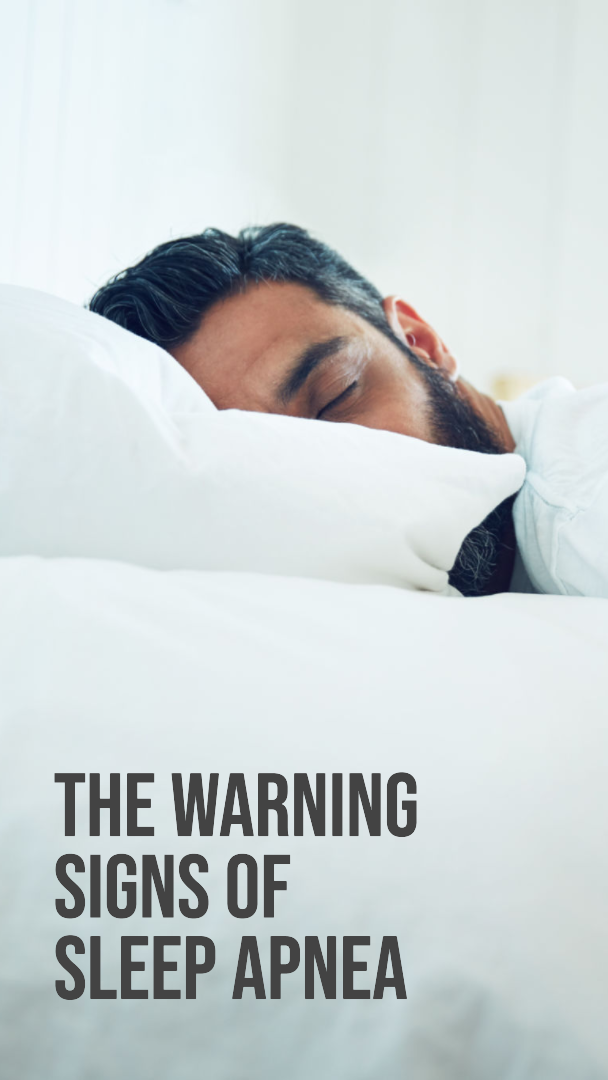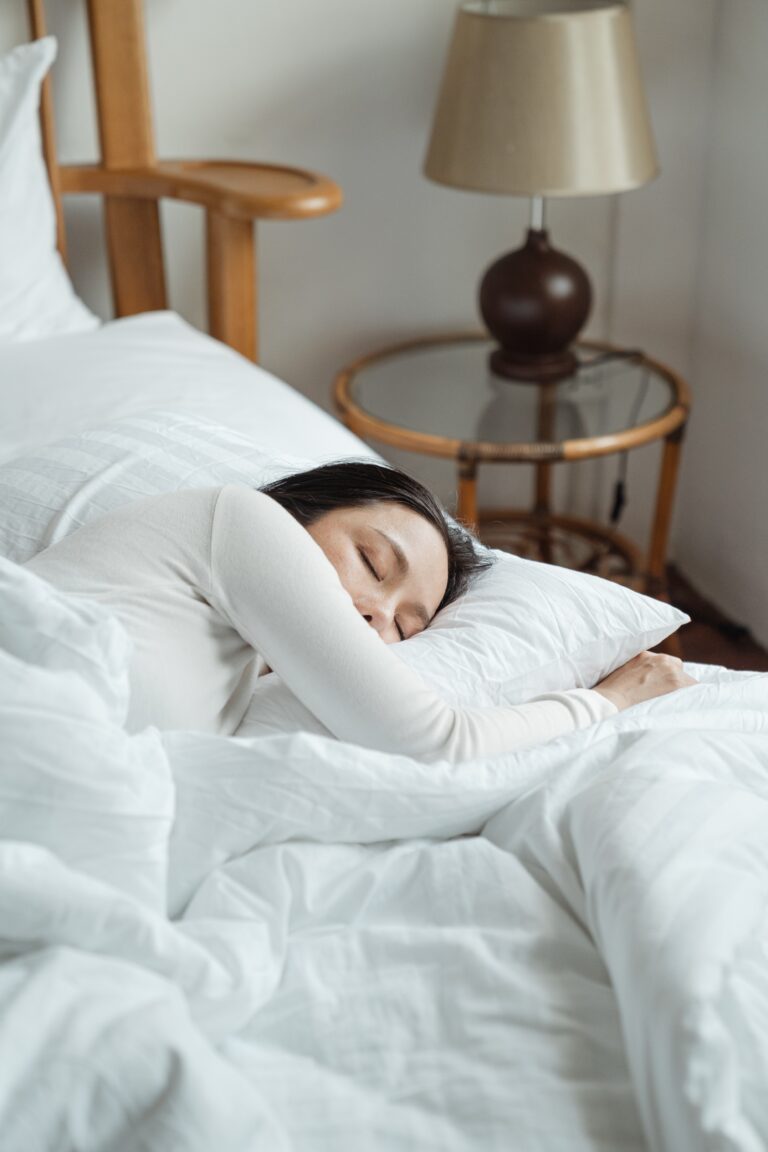The Benefits of CPAP Therapy for Sleep Apnea
The Benefits at a Glance:
- Improved sleep quality: CPAP therapy prevents airway collapse, reducing sleep disruptions and promoting restorative sleep.
- Reduced daytime sleepiness: By improving sleep quality, CPAP therapy increases daytime alertness and concentration.
- Decreased blood pressure: CPAP therapy can help lower both systolic and diastolic blood pressure in sleep apnea patients.
- Reduced risk of heart disease and stroke: By alleviating sleep apnea, CPAP therapy lowers the risk of cardiovascular complications.
- Improved glucose metabolism: CPAP therapy has been shown to improve glucose metabolism, reducing the risk of type 2 diabetes.
- Potential weight loss benefits: CPAP therapy can contribute to weight loss, particularly in patients with obesity-related sleep apnea.
- Reduction in anxiety and depression: By improving sleep quality, CPAP therapy can help alleviate symptoms of anxiety and depression.
- Improved cognitive function: Adequate sleep, facilitated by CPAP therapy, is crucial for optimal memory, attention, and problem-solving abilities.
- Reduced snoring: CPAP therapy can significantly reduce or eliminate snoring, providing a more peaceful sleep environment for both the patient and their partner.
- Improved intimacy and relationship satisfaction: By improving sleep quality and reducing daytime sleepiness, CPAP therapy can enhance intimacy and overall relationship satisfaction.
Sleep apnea is a common sleep disorder affecting millions of people worldwide. It is characterized by brief interruptions of breathing during sleep, which can have significant health consequences if left untreated. There are three types of sleep apnea: Obstructive Sleep Apnea (OSA), Central Sleep Apnea (CSA), and Complex Sleep Apnea Syndrome (CompSAS). Of these, OSA is the most prevalent.
Untreated sleep apnea can lead to various health problems, including heart disease, high blood pressure, and stroke. Furthermore, it can negatively impact an individual’s quality of life, causing excessive daytime sleepiness, poor concentration, and irritability. One of the most effective treatments for sleep apnea is Continuous Positive Airway Pressure (CPAP) therapy. In this essay, we will explore the numerous benefits of CPAP therapy for sleep apnea patients.
Understanding CPAP Therapy
To fully appreciate the benefits of CPAP therapy, it’s essential to understand its components and how it works. A standard CPAP system comprises three main parts: the CPAP machine, mask and headgear, and tubing and filters.
Components of CPAP Therapy
- CPAP Machine: The CPAP machine is the heart of the therapy. It generates a continuous stream of pressurized air that is delivered to the patient’s airways.
- Mask and Headgear: The mask is worn over the nose, mouth, or both, depending on the user’s preference and needs. The headgear ensures the mask stays in place during sleep.
- Tubing and Filters: Tubing connects the CPAP machine to the mask, while filters help purify the air being delivered to the patient.
How CPAP Therapy Works
CPAP therapy works by providing a constant flow of pressurized air to the patient’s airways. This air pressure helps keep the airways open, preventing the collapse or blockage responsible for apneas. In this way, CPAP therapy ensures uninterrupted breathing and improved sleep quality for sleep apnea sufferers.
Benefits of CPAP Therapy for Sleep Apnea
CPAP therapy offers a wide range of benefits, from improved sleep quality and reduced daytime sleepiness to enhanced cardiovascular and metabolic health. Let’s delve into these benefits in more detail.
Improved Sleep Quality
One of the primary benefits of CPAP therapy is the significant improvement in sleep quality. With CPAP, sleep apnea patients experience:
- Reduction in sleep disruptions: The continuous air pressure prevents apneas, allowing patients to sleep without the frequent awakenings caused by breathing interruptions.
- Increased sleep duration: As a result of fewer disruptions, patients can achieve longer, uninterrupted sleep, leading to better overall rest.
- Enhanced REM sleep: REM sleep is essential for cognitive function and emotional regulation. CPAP therapy helps sleep apnea patients achieve longer, more restorative REM sleep.
Reduced Daytime Sleepiness
Sleep apnea sufferers often struggle with excessive daytime sleepiness due to their interrupted sleep. CPAP therapy can dramatically improve this, leading to:
- Improved alertness and concentration: With better sleep, patients experience increased focus and alertness during the day.
- Increased work productivity: As a result of improved concentration, sleep apnea patients may find their work performance and productivity significantly enhanced.
- Reduction in the risk of accidents: Sleep apnea increases the risk of motor vehicle and workplace accidents. CPAP therapy can lower this risk by combating daytime sleepiness.
Cardiovascular Health Benefits
Sleep apnea is closely linked to various cardiovascular problems. CPAP therapy can help mitigate these risks by:
- Decreasing blood pressure: Studies have shown that CPAP therapy can lead to a reduction in both systolic and diastolic blood pressure in sleep apnea patients, especially among those with more severe conditions.
- Reducing the risk of heart disease and stroke: By alleviating sleep apnea, CPAP therapy can lower the risk of developing heart disease and stroke, both of which are strongly associated with untreated sleep apnea.
- Improving heart function: CPAP therapy can also improve overall heart function by reducing the strain on the heart caused by repeated apneas during sleep.
Metabolic Health Benefits
Sleep apnea is often linked to metabolic disorders, such as insulin resistance and type 2 diabetes. CPAP therapy can provide the following metabolic benefits:
- Improved glucose metabolism: CPAP therapy has been shown to improve glucose metabolism in sleep apnea patients, which can help reduce the risk of developing type 2 diabetes.
- Reduced risk of type 2 diabetes: By improving glucose metabolism and promoting weight loss (as discussed below), CPAP therapy can lower the risk of developing type 2 diabetes.
- Potential weight loss benefits: Some studies have suggested that CPAP therapy can contribute to weight loss, particularly in patients with obesity-related sleep apnea. The improved energy levels and reduced daytime sleepiness may encourage patients to engage in more physical activities, further promoting weight loss.
Mental Health Benefits
Sleep apnea can negatively impact mental health, causing increased anxiety, depression, and mood swings. CPAP therapy can provide the following mental health benefits:
- Reduction in anxiety and depression: By improving sleep quality and reducing sleep disruptions, CPAP therapy can help alleviate symptoms of anxiety and depression in sleep apnea patients.
- Improved mood and emotional well-being: With better sleep and reduced anxiety and depression, patients often experience an overall improvement in mood and emotional well-being.
- Enhanced cognitive function: Adequate sleep is crucial for optimal cognitive function. CPAP therapy can improve memory, attention, and problem-solving abilities by ensuring a good night’s sleep.
Relationship Benefits
Sleep apnea doesn’t just affect the person suffering from it; it can also impact their relationships, particularly with a partner who shares the same bed. CPAP therapy can improve relationships by:
- Reduction in snoring: Many sleep apnea patients snore loudly, which can disrupt their partner’s sleep. CPAP therapy can significantly reduce or eliminate snoring, leading to a more peaceful sleep environment.
- Improved intimacy: Untreated sleep apnea can cause fatigue and irritability, which can strain relationships and negatively impact intimacy. By improving sleep quality and reducing daytime sleepiness, CPAP therapy can help enhance intimacy between partners.
- Greater overall relationship satisfaction: As a result of the improved sleep, reduced snoring, and enhanced intimacy, couples may experience greater overall relationship satisfaction when one partner uses CPAP therapy for sleep apnea.
Challenges and Considerations of CPAP Therapy
While CPAP therapy offers numerous benefits, it is not without its challenges and considerations, including adherence and compliance, potential side effects, and financial aspects.
Adherence and Compliance
One of the significant challenges of CPAP therapy is ensuring consistent use, as some patients struggle with adherence due to discomfort or inconvenience. Common barriers to adherence include mask discomfort, claustrophobia, and noise from the machine. Strategies to improve compliance may include trying different mask types, using white noise machines, or seeking support from a sleep specialist or support group.
Potential Side Effects
CPAP therapy can cause some side effects, though they are usually mild and manageable:
- Dry mouth or throat: Some patients experience dry mouth or throat while using CPAP therapy. This can be alleviated by using a humidifier or adjusting the mask for a better fit.
- Nasal congestion or irritation: Nasal congestion or irritation may occur in some CPAP users. A saline nasal spray or a heated humidifier can help relieve these symptoms.
- Skin irritation from the mask: Some patients may experience skin irritation or pressure sores from the mask. Trying different mask styles or using mask liners can help mitigate these issues.
Financial Considerations
The cost of CPAP equipment can be a concern for some patients, as machines and accessories can be expensive. However, many insurance plans cover CPAP therapy, and there are assistance programs available for patients who cannot afford the equipment. It’s essential to discuss financial considerations with a healthcare provider to determine the most suitable options.
Alternative Treatments for Sleep Apnea
While CPAP therapy is highly effective for many sleep apnea patients, it is essential to recognize that it may not be suitable for everyone. There are alternative treatments available for those who cannot tolerate or do not benefit from CPAP therapy:
- Positional therapy: For some patients, positional therapy, such as sleeping on their side, can help alleviate sleep apnea symptoms.
- Oral appliances: Oral appliances, like mandibular advancement devices, can help keep the airway open by repositioning the jaw and tongue during sleep.
- Lifestyle modifications: Weight loss, exercise, and avoiding alcohol and sedatives can improve sleep apnea symptoms in some cases.
- Surgical interventions: In more severe cases, or when other treatments are ineffective, surgical interventions such as uvulopalatopharyngoplasty (UPPP), genioglossus advancement, or maxillomandibular advancement may be considered.
Conclusion
The benefits of CPAP therapy for sleep apnea are numerous and significant, ranging from improved sleep quality and reduced daytime sleepiness to enhanced cardiovascular and metabolic health. However, it’s essential to recognize the potential challenges and considerations of CPAP therapy, including adherence, side effects, and financial aspects.
For those who cannot tolerate or do not benefit from CPAP therapy, alternative treatments are available. It is crucial for individuals suffering from sleep apnea to consult with their healthcare professionals to determine the best course of action. By addressing sleep apnea effectively, patients can improve their overall health, well-being, and quality of life.




